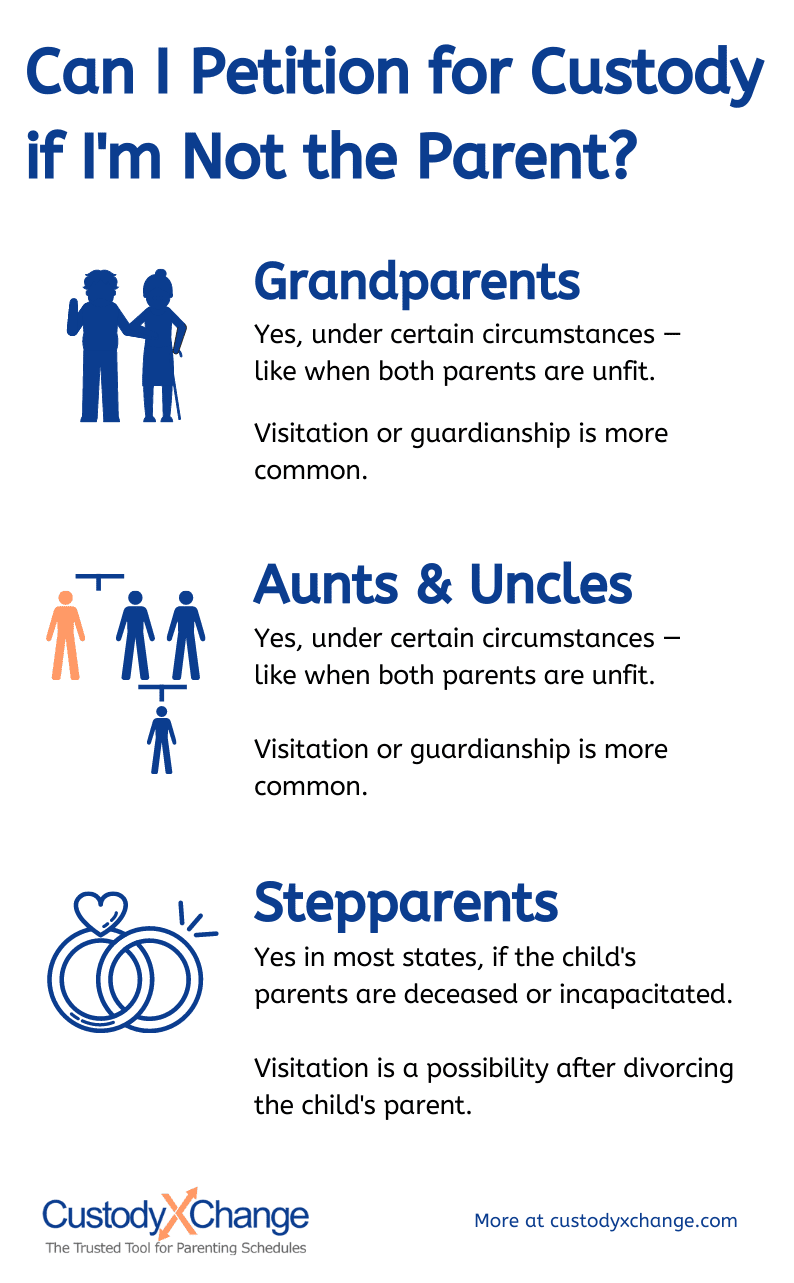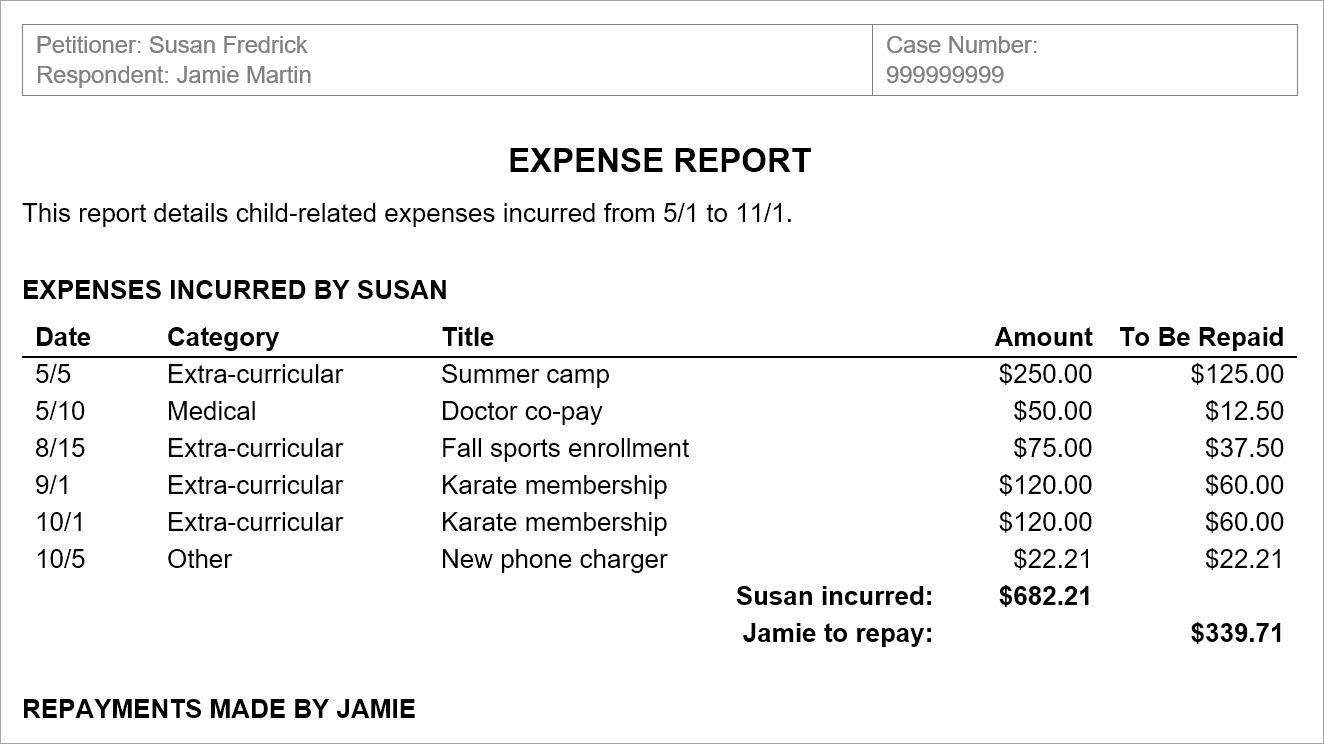Can a Grandparent Have Joint Custody With a Parent?
Grandparents often step in when their adult child needs help with parenting. Especially if one parent is uninvolved, a grandparent might formally share responsibility with the parent who remains in the picture.
When a grandparent and a parent share legal responsibility, the grandparent typically has guardianship while the parent has custody. Nonetheless, you may hear terms like co-guardianship or joint custody.
When is a guardian appointed?
A guardian is appointed to care for a child while a parent is unable to perform that care. A guardian's responsibilities may vary:
- Full guardianship includes authority for all types of decisions about the child, big and small.
- Limited guardianship specifies responsibilities (e.g., only financial matters).
- Special guardianship may be a very brief arrangement.
A parent may name a guardian in advance (often in a parenting plan, trust or will) or they may wait until an emergency occurs (like their own hospitalization). A living parent likely continues to have custody, but the guardian handles their duties for them. The guardianship may end automatically when the parent becomes able to care for their child again.
If necessary, a court can appoint a guardian without the parent's awareness or consent. Some jurisdictions prefer that a grandparent or other family member is named as guardian.
Can a parent and grandparent share guardianship?
Yes, it's possible. When two people are guardians of the same child, they have a co-guardianship. Co-guardians are usually married couples, e.g., a child's aunt and uncle, or grandmother and grandfather.
Typically, a parent simply has custody and thus doesn't need to be named as a guardian — although in rare situations, a parent might be a guardian. For example, someone who is in the process of establishing their parenthood by paternity test or adoption could become a guardian, and the child's grandparent could be co-guardian with them.
When is custody determined?
Custody is usually automatic for a person who has a baby or is married to someone who has a baby. If there's a divorce or breakup, or if the child is at risk, a court will examine the facts and decide the custody situation going forward. In some situations, custody can be awarded to a someone who isn't a parent.
Can a parent and grandparent share custody?
Yes, in some places. Each U.S. state and Canadian province has its own family law, including its own rules about custody. Some areas have specific laws about grandparents and joint custody with grandparents.
It's usually up to parents whether to include a grandparent in their child's life. But if parents are divorced or separated, a grandparent may seek visitation rights, and if a court awards these visits, the parents must allow them.
In some areas, grandparents can seek custody (not only visitation or guardianship), particularly if the parents are unfit (e.g., abusive).

A judge is unlikely to order shared custody for a parent and grandparent who don't see eye-to-eye.
However, if a parent and grandparent can work together, a court may approve their joint custody agreement. This would mean the parent and grandparent would share responsibility for major decisions about the child and for day-to-day child care. A parent and grandparent might make such an agreement if the second parent were uninvolved, unknown, missing, incarcerated or deceased.
Situations in which grandparents increase their role
When grandparents become primary caregivers for a grandchild, it's usually because a parent is facing challenges like:
- Substance addiction (In the United States, this is the most common reason for a grandparent to take responsibility for a child.)
- Hospitalization (including for mental illness)
- Disability (physical or intellectual)
- Military deployment
- Incarceration
- Deportation
- Abuse
- Death
If you're a grandparent in one of these situations, you should encourage the child to have safe contact with their parent, and you should remember that a parent has the right to petition the court for access to their child.
The parent might receive a step-up parenting plan that gives them more responsibility as they make progress.
But sometimes these efforts don't work out, and grandparents remain the primary caregiver of their grandchild.
These situations involve loss. It's normal to grieve when a family situation doesn't turn out as you dreamed it would. It's OK to ask for help. There are support groups for grandparents.
Prepare for court
Receiving guardianship or custody of a grandchild is a big step. Make your best effort so it turns out well:
- Speak to a lawyer to understand your options. If you can't afford a lawyer's standard rate, seek legal aid in your area.
- Advocate for the child's best interests. Try to minimize their stress as you pursue an arrangement to give them stability.
- Be sure that paternity is established so that you and the court know who both legal parents are.
- A custody evaluation, which includes home visits, may provide the court with useful information.
- If it's difficult to speak to your grandchild's parents directly, you can try mediation. A mediator can draft a legal document with any agreement you reach.
How a co-parenting app can help
A grandparent seeking joint custody of a grandchild should stay organized. The Custody X Change online app can help.
Send schedule reminders
Custody X Change can send you reminders of your child care schedule. For example, a grandparent may be responsible for the child during the week, and the parent may have the child on the weekend.
 You can customize this to fit your situation with Custody X Change.
You can customize this to fit your situation with Custody X Change.
Save child info
Record information about your grandchild — e.g., their teacher's name, their shoe size — in the child info tool.
 You can customize this to fit your situation with Custody X Change.
You can customize this to fit your situation with Custody X Change.
Record and tally expenses
Keep a record of how much you and the child's parent spend and whether you've repaid each other.
 You can customize this to fit your situation with Custody X Change.
You can customize this to fit your situation with Custody X Change.
Work together with your grandchild's other caregivers
When you subscribe to Custody X Change, the app refers to you as a "parent."
If you want, you can link with another person (e.g., your spouse or your adult child) who will also have the role of "parent." There's an option for you to pay for their subscription if you'd like.
Linking accounts lets the two of you work together in the app. For example, you can message each other. The app saves your conversations. You can search by a word or label, and you can print conversations — which you might do if a state investigator or a judge ever asks you for proof of your caregiving role.
 You can customize this to fit your situation with Custody X Change.
You can customize this to fit your situation with Custody X Change.
If the child's other parent has some involvement, you might give them a more limited "guest" role in the app. That lets them see (but not edit) your calendar. Their guest access is free.
You can also link accounts with your lawyer.
You love your grandchildren, and they need you in their lives. Try Custody X Change, and see how it can help you care for them.
